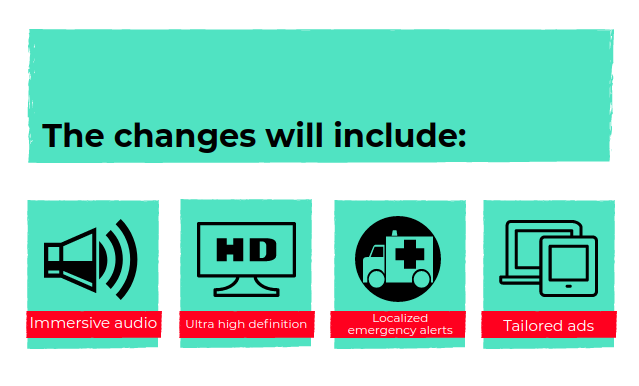FCC approves ‘Next- Gen TV’ with tailored ads
January 5, 2018
Nine months after proposing “Next Gen TV,” television programming that includes ads tailored to viewer preferences and ultra-high definition, the FCC passed the proposal in a 3-2 vote Nov. 16. The change threatens to contribute towards a digital divide between wealthier viewers who will upgrade their systems with the new software and viewers unable to afford it.
Mike Songer, an intellectual property lawyer who specializes in internet and media law, said this change was bound to happen for television.
“It’s the way technology is moving, and there’s no reason not to have TV catch up with the other ways your generation watches shows,” he said.
This technology already exists on computers, iPads, tablets and other electronic devices—software tracks a user’s history and preferences and tailors advertisements accordingly. By allowing similar preference-based ads on broadcast television, the FCC is bringing television up to date with current trends in media and advertising, Songer said.
Some believe that the change will make broadcast advertisement more effective. English teacher Lisa Kliefoth, who previously worked in advertising, says that Next-Gen TV will make advertising more individualized.
“Generally, it’s probably going to make things more efficient and certainly more targeted now,” Kliefoth said. “I do think that if the advertisers and media providers have access to the data they acquire, it can pinpoint results.”
Not everyone is excited for the change, though: English teacher Matthew Bruneel said he believes that the change won’t bring much added success to broadcast television, and that the technology is inessential.
“For the consumer, I think there’s enough information out there about ratings and different review sites about where to find products and companies that you like,” Bruneel said. “It’s not really necessary for a commercial to inform you about a product these days.”
Others worry that the changes will be too intrusive. The new technology can track your viewing habits, which some users don’t like.
“I think it’s an invasion of your privacy because it can see what you’re searching,” sophomore Morgan Freund said. “It’s kind of creepy.”










